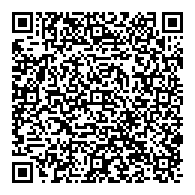Or: I Told You So (But Wish I Hadn’t Been Right)
About 12 years ago, I discussed why censoring the internet was a bad idea. Now all these years later, the UK Government has finally implemented an act which does just that, and it’s going as well as you’d expect.
Back in 2013, when David Cameron was banging on about blocking pornography “by default,” I warned that this was a slippery slope toward broader internet censorship. I called it then, and sadly, I’ve been proven absolutely right. The Online Safety Act has landed, and it’s everything I feared it would be and worse.
What the Act Actually Does
Let’s cut through the government’s PR spin about “protecting children” and look at what this legislation actually requires. Under the Online Safety Act, any website or app that hosts adult content must now verify users’ ages before granting access. How do they do this? Well, you’ve got a few delightful options:
- Hand over your driving licence, passport, or other government-issued ID to a third-party verification company
- Take a selfie and let AI technology attempt to determine your age from your face
- Get verified through your credit card provider, bank, or mobile phone network
Brilliant. Nothing could possibly go wrong with that, could it?
The Draconian Penalties
If you’re a site operator thinking you might just ignore this nonsense, think again. The penalties for non-compliance are eye-watering: fines of up to £18 million or 10% of global revenue, whichever is greater. Senior managers can even face criminal charges if they fail to comply with Ofcom’s enforcement notices.
That’s not regulatory oversight, that’s a digital protection racket.
Control, Not Child Protection
Whilst the government wraps this up in the familiar “think of the children” rhetoric, it’s blindingly obvious this isn’t really about protecting kids. It’s about control. When you require adults to provide government ID to access perfectly legal content, you’re not protecting children, you’re building a surveillance infrastructure that the conspiracy theorists have been banging about for years.
The act doesn’t just affect pornography sites either. It covers any platform deemed to have content that might be “harmful” to children. That’s a deliberately vague definition that could encompass news sites, social media platforms, educational resources, or virtually anything the government decides it doesn’t like.
Sites Just Block the UK Instead
Rather than jump through these authoritarian hoops, many sites have simply decided the UK market isn’t worth the hassle. Various platforms have started geo-blocking UK users entirely rather than implementing age verification systems. Can you blame them? Why deal with the UK’s bureaucratic nightmare when you can just write off 67 million people and carry on serving the rest of the world?
The Voting Age Hypocrisy
Here’s where it gets properly mental: the Labour government is actively pushing to lower the voting age to 16, arguing that teenagers are mature enough to make informed decisions about the future of the country. Yet these same supposedly responsible young adults won’t be able to access news websites or current affairs content that might help them make those informed decisions, because they can’t pass the government’s age verification checks.
Let that sink in. Old enough to vote, not old enough to read the news. George Orwell would be having a field day.
Wikipedia Fights Back
Even Wikipedia – hardly a hotbed of radical libertarianism – has had enough. The Wikimedia Foundation has launched a legal challenge against the Act’s regulations, arguing they threaten the safety of volunteer editors and could compromise the site’s ability to remove harmful content. When Wikipedia is taking the government to court over internet freedom, you know things have gone seriously wrong.
The Foundation has been warning about this legislation for years, correctly predicting that it would threaten one of the world’s most important knowledge resources.
The Privacy Nightmare
Remember, all this age verification is handled by third-party companies – private businesses that now hold vast databases of UK citizens’ personal information linked to their browsing habits. What could go wrong?
Well, let’s look at the Tea app data breach that happened just this week. Hackers gained access to around 72,000 images from users, including selfies with photo ID – exactly the kind of verification data these new systems require. This is your future under the Online Safety Act: your government ID and browsing history sitting in some company’s database, just waiting for the next inevitable breach.
Half a Million Signatures Ignored
The public response has been swift and decisive. A petition calling for the repeal of the Online Safety Act has gathered over 450,000 signatures – well over the 100,000 threshold required for parliamentary debate. The government’s response? A dismissive “we have no plans to repeal the Online Safety Act.”
Nearly half a million UK citizens have formally requested their government reconsider this authoritarian overreach, and they’ve been told to get stuffed. This is what democracy looks like in modern Britain, apparently.
A Bipartisan Disaster
This legislative monstrosity has its roots in Theresa May’s Conservative government, dating back to 2017. It survived multiple prime ministers and departmental reshuffles, proving that when it comes to restricting internet freedom, there’s remarkable cross-party consensus in Westminster. The current Labour government hasn’t just continued this work – they’ve enthusiastically finished the job.
So much for the traditional left-wing commitment to civil liberties.
VPNs to the Rescue (For Now)
Predictably, tech-savvy Brits have responded to this digital authoritarianism by voting with their virtual feet. VPN sign-ups have absolutely exploded since the Act came into force. Proton VPN reported a staggering 1,400% increase in UK sign-ups within minutes of the legislation taking effect, with sustained increases of 1,800%. VPN apps have shot to the top of the App Store charts.
The government’s response? They’re now “looking very closely” at VPN usage and haven’t ruled out banning them entirely. Because nothing says “liberal democracy” like banning the tools people use to access the free and open internet.
Export Version Authoritarianism
Of course, this madness isn’t staying contained to the UK. Similar legislation is being planned or implemented in Australia and the United States. The UK has become the test case for digital authoritarianism that governments worldwide are watching with keen interest. If we let this stand, expect to see copycat legislation rolling out across the democratic world.
One Party Stands Against It
In the entire Westminster establishment, only one party has committed to fully repealing this Act: Reform UK. They’ve called it “borderline dystopian” – which, let’s be honest, is being generous. Whether you agree with Reform’s other policies or not, they’re the only ones willing to call this what it is: an assault on digital freedom that has no place in a democratic society.
The Road to Digital Serfdom
This is how liberty dies – not with jackboots and brown shirts, but with bureaucrats and safety regulations. Every authoritarian measure is wrapped in the language of protection: protecting children, protecting democracy, protecting public health, protecting national security. The Online Safety Act is just the latest example of this playbook.
We’ve gone from a free internet to one where adults must present their papers to a private company to access legal content. This isn’t progress – it’s digital feudalism, with the government and their corporate partners as the new lords and us as the serfs.
I wish I’d been wrong back in 2013. I really do. But the internet censorship chicken has well and truly come home to roost, and it’s every bit as authoritarian and counterproductive as I predicted it would be.
The question now is: will we let it get worse, or will we finally wake up and demand our digital rights back?
The debate on the petition is still pending a date from Parliament. Don’t hold your breath.













